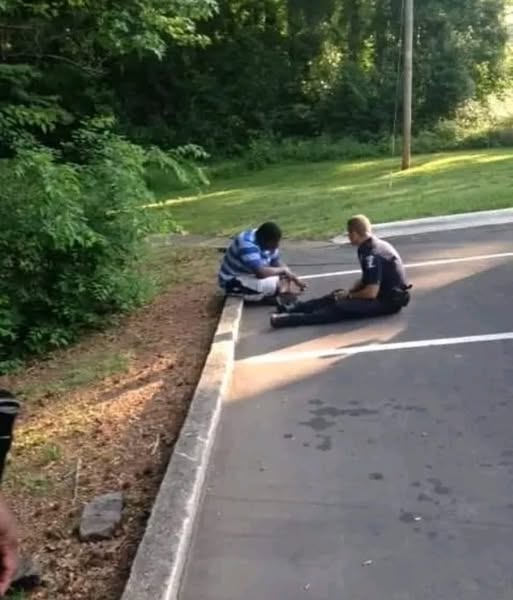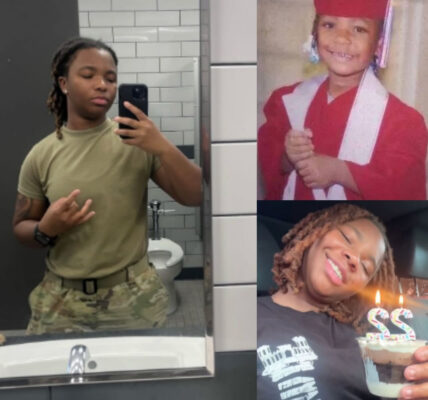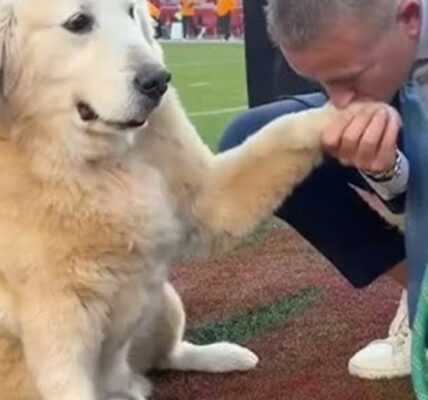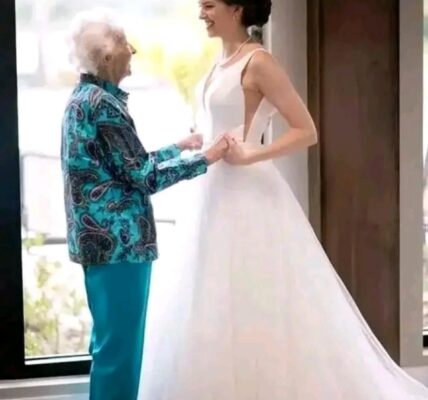
The call came in like so many others—urgent, uncertain, and heavy with possibility. Officer Tim Purdy was dispatched to check on a young high school student who had wandered away from campus. The boy was autistic, and the report suggested he might be suicidal. That combination alone was enough to raise concern. But there was another detail that made the situation even more delicate: the young man had a history of violent outbursts, a side effect of his neuro-developmental disorder.
When Officer Purdy arrived, he quickly understood the fragile balance in front of him. This wasn’t just about enforcing rules or securing a scene. This was about life. About a teenager who, in that moment, might not have seen a reason to keep going.
Rather than approaching with commands or cautionary distance, Purdy did something different. He lowered himself to the young man’s level—literally. Sitting down on the ground next to him, he set aside the badge, the authority, and the uniform, and instead offered something far more powerful: humanity.
At first, the boy was closed off, wary, his body tense with mistrust. Years of struggling to connect with others had left him defensive, ready for rejection. But Purdy didn’t rush. He spoke calmly, his voice steady, his words simple. He let the silence stretch when it needed to. Slowly, the young man responded—not with words at first, but with a shift in his posture, a glance, the faintest opening of a door.
Minutes passed. Bit by bit, walls came down. Then came a spark—laughter. Officer Purdy cracked a joke, the boy chuckled, and suddenly the heaviness of the moment lifted just enough for connection to grow. In that laughter, trust was born.
It wasn’t about arresting or restraining. It wasn’t about force or authority. It was about showing someone—someone who felt alone, misunderstood, and on the edge—that he mattered. That his life was worth more than the pain he carried.
By the end, the young man wasn’t facing the officers as an enemy. He was sitting with someone who cared enough to see him as a person, not a problem. That fragile bridge of trust made it possible for him to get the help he desperately needed.
The story of that day isn’t just about a police officer doing his job. It’s about the truth that policing, at its best, is far more than arrests, laws, and courtrooms. It is about compassion. It is about knowing that sometimes the greatest act of service is not in writing a report or issuing a citation, but in sitting down on the ground beside someone who has lost hope—and staying there until the light begins to return.
And for one young man, on one desperate day, that difference meant everything.




